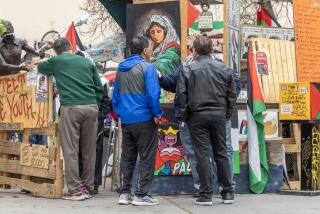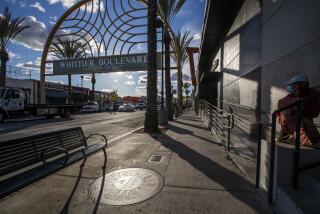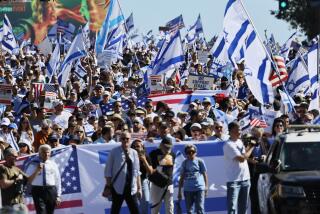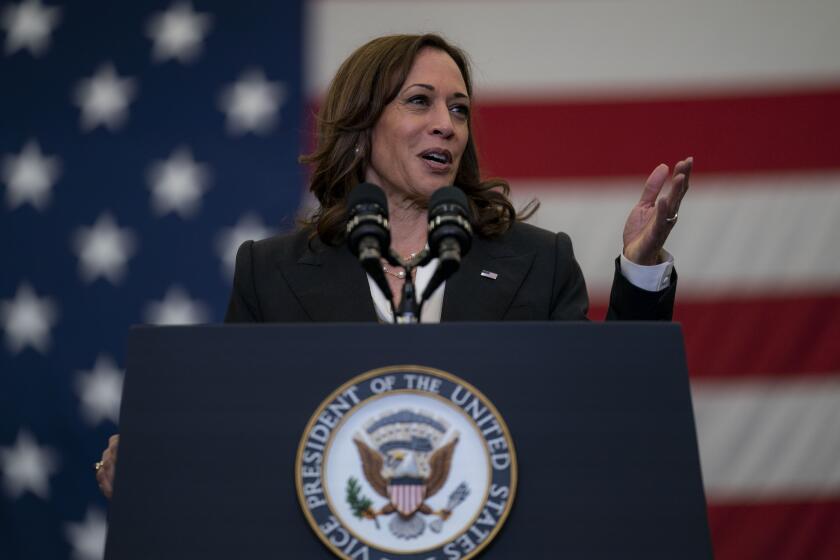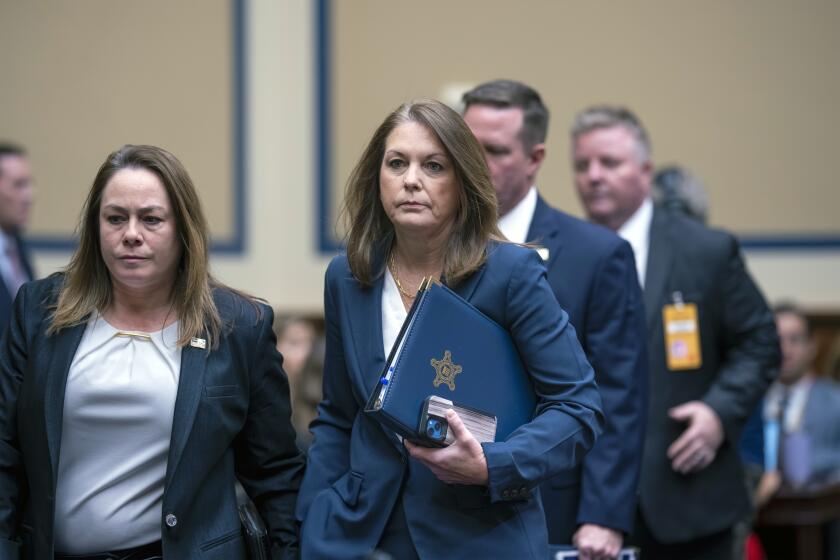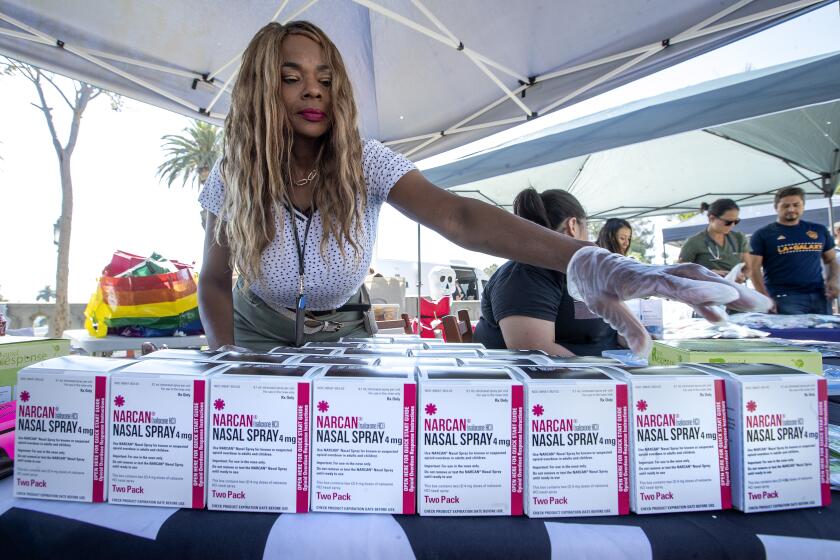Hundreds converge on East Los Angeles for 50th anniversary of Chicano Moratorium
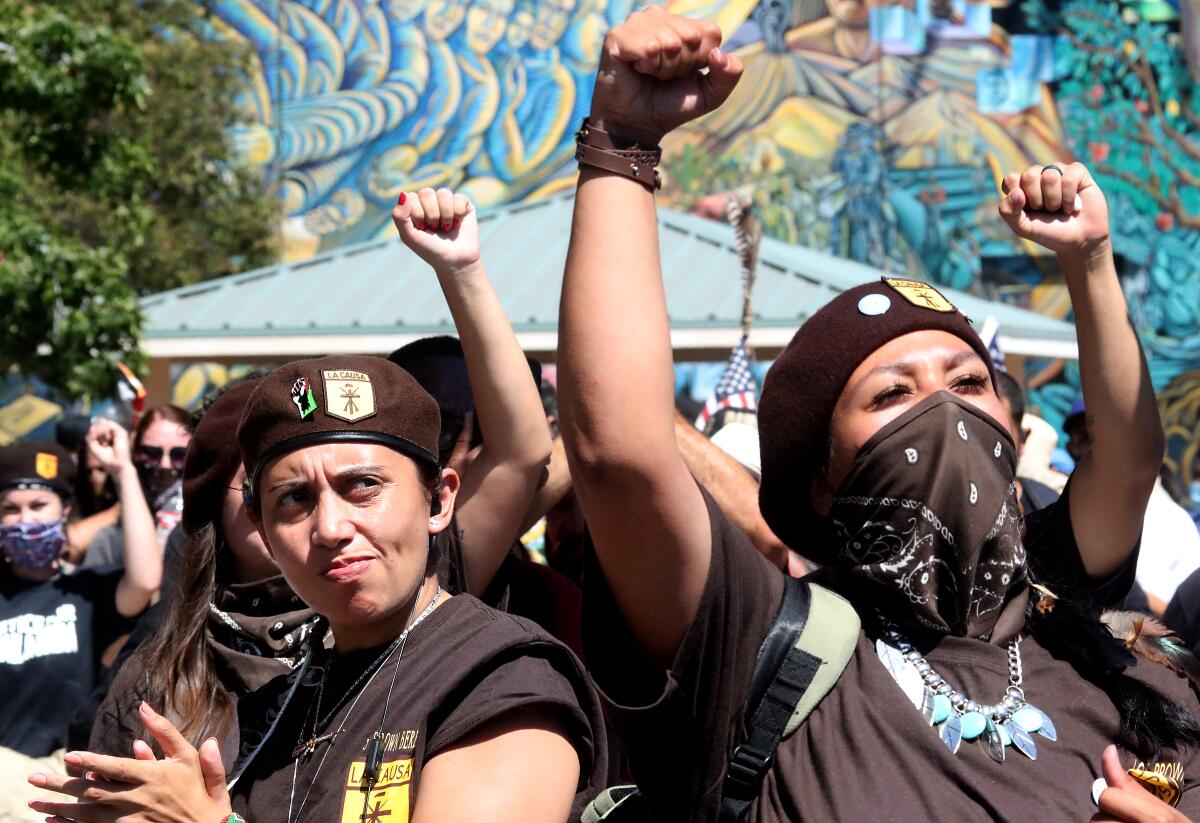
Several hundred marchers and dozens of tricked-out cars converged on an East Los Angeles park Saturday to commemorate the 50th anniversary of the Chicano Moratorium, a peace march to protest racial injustice and the disproportionate death toll of Mexican American soldiers in the Vietnam War.
Reprising the Chicano power and revolutionary rhetoric of the 1970 event, speakers at Saturday’s rally called for unity among the Latino and Black communities to fight the oppression they said has not been vanquished in the last half century.
The mothers of young men who were killed in police shootings tearfully called for justice for their sons while others in the crowd shouted, “Say the name, David Flores! Say the name, Alex Hernandez.”
In a concession to the novel coronavirus, attendees remained largely masked and kept hugging to a minimum, though physical distancing proved futile even in a crowd that grew only to a fraction of the tens of thousands who marched Aug. 29, 1970.
That event started as a peaceful demonstration. But the day turned violent when sheriff’s deputies stormed Laguna Park and tried to disperse protesters with tear gas and clubs. Three people were killed, including Times journalist Ruben Salazar.
The 1970 rally, which was the biggest gathering of Mexican American demonstrators in U.S. history to that point, is recognized as a pivotal moment in the Chicano civil rights movement. Organizers of this year’s event point out that some of the issues highlighted — including racial injustice and law enforcement brutality — remain painfully relevant today as protests continue across the nation over the deaths of Black men and women at the hands of police.
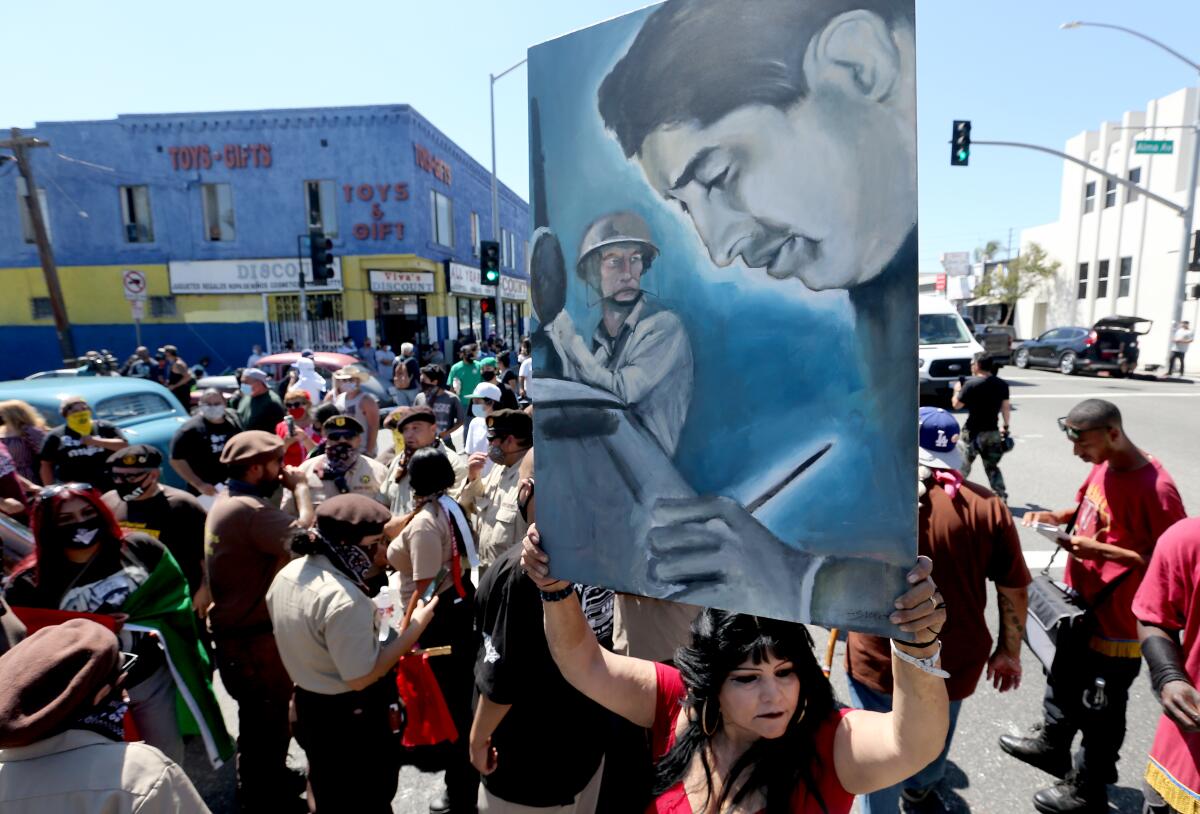
Saturday’s march started at Atlantic Park, just north of Whittier Boulevard, and ended about 2 ½ miles away at Salazar Park, the name given to Laguna Park weeks after the 1970 march.
As the marchers gathered in the morning, about 50 Brown Berets from around the country stood in a circle as several of them reflected spontaneously on the meaning of the commemoration.
“It’s a continuation, not a celebration,” said L.A. native Lukas Tekolotl. “We are fighting for the same thing. That means we’re not doing something right. We’re not being effective. We have to look back.”
In sharp contrast with the 1970 march, the Los Angeles County Sheriff’s Department stayed out of sight Saturday, leaving the Brown Berets in charge of crowd and traffic control. They deftly guided the marchers slowly along the route with several Aztec dancing troupes in feathered headdresses and mandatory masks leading the way.
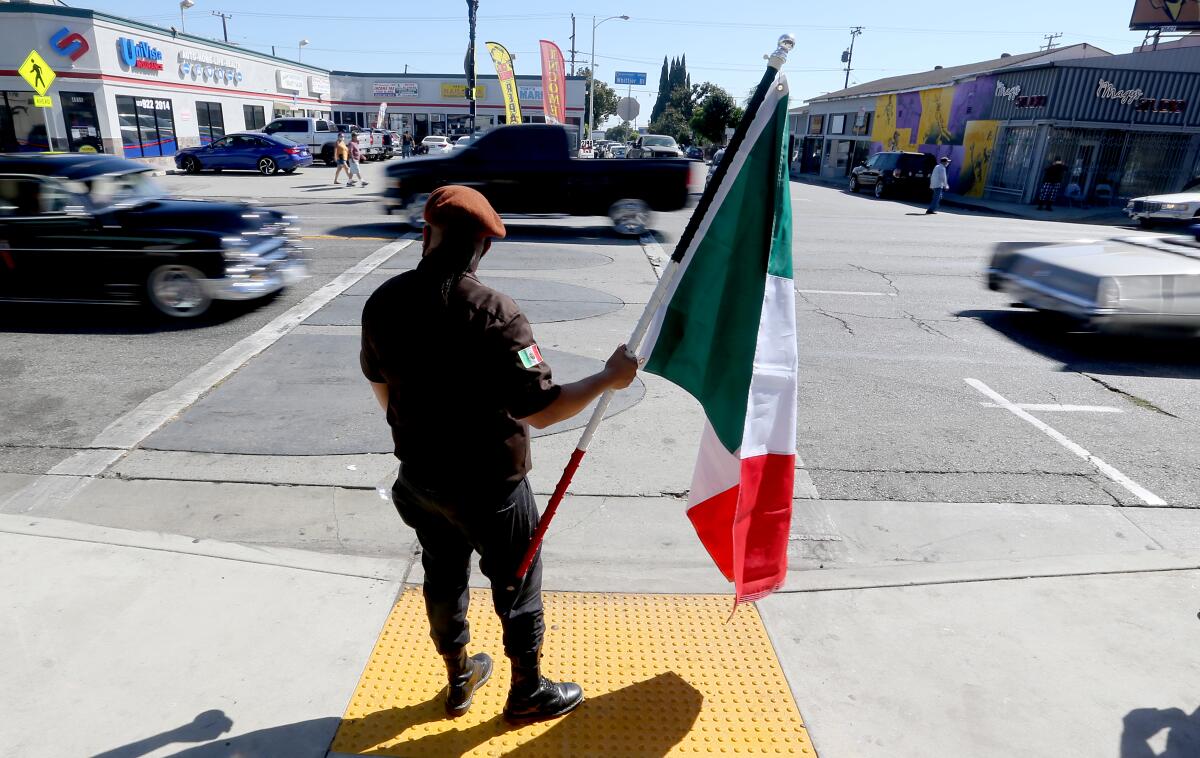
At the intersection of Atlantic and Whittier boulevards, the marchers joined a caravan of vintage cars that eventually merged into a gridlocked parade of honking, shouting and sign-waving.
One of the day’s few tense moments occurred when a woman at an outdoor restaurant rushed at a marcher who took her picture. Several Brown Berets quickly defused the scuffle. Through the day the crowd remained mellow, letting its emotion show through rhetoric alone.
Sara Aguilar, 42, of Whittier has taken to the streets annually for the Women’s March and most recently the Black Lives Matter movement. But as a Latina and a recent member of the Brown Berets, she couldn’t miss the Chicano Moratorium anniversary march.
Alongside her were Brown Berets from across the country: Fresno, Houston, Chicago, Oregon, Colorado and beyond.
She grew up in East L.A., and she hasn’t seen much progress since her youth.
“I don’t think much has changed as far as being treated equally or as a woman,” she said. “That’s why we’re still out here today. It’s not only a celebration but a continuation of our fight.”
She remembers, as a little girl in school, being “taught that I can’t speak Spanish and that I needed to learn English.”
“I’m here to get back to my roots and fight for a future that’s different for the children.”
Rafael Avitia, co-chair of La Mesa Brown Berets, said the term “Chicano” encompasses all Indigenous people.
“We’re going to march and reassert who we are: la gente de Aztlan [the people of Aztlan],” Avitia said. “How the hell can we be illegal? We are Indigenous on this land.”
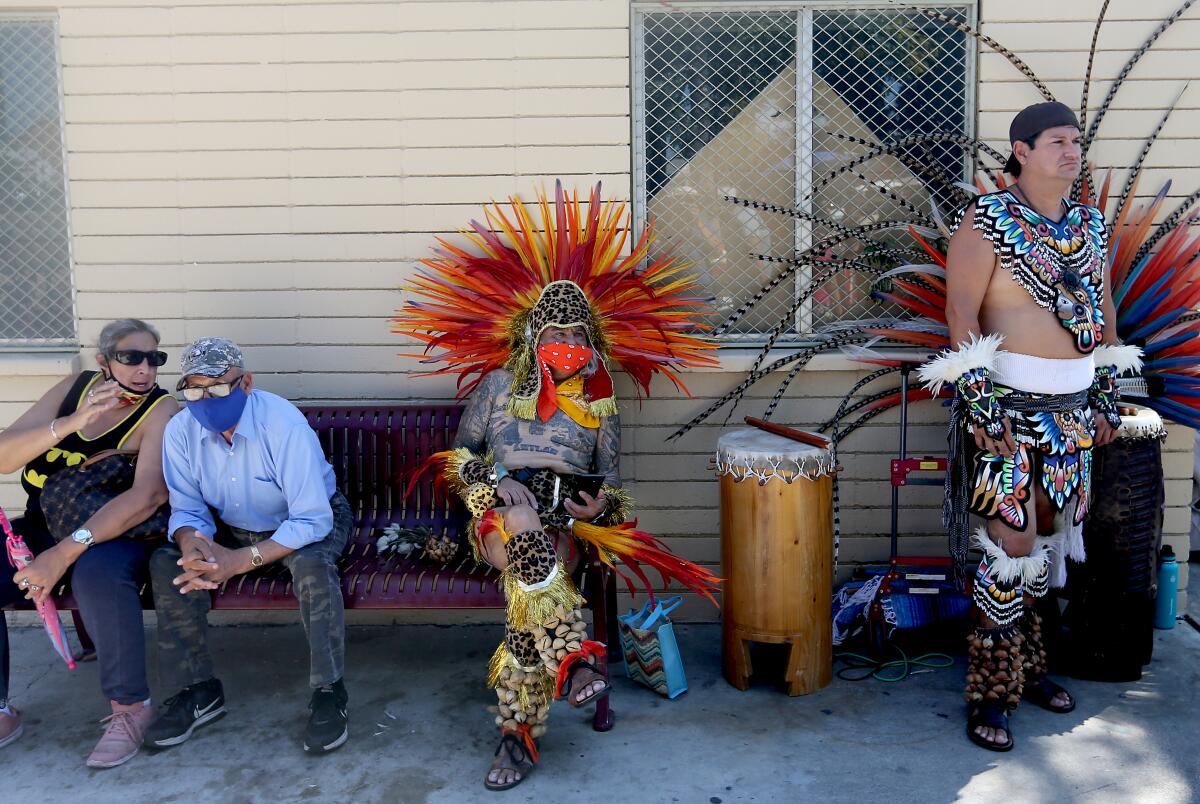
Those gathered decried continued killings by Los Angeles County sheriff’s deputies and Los Angeles police officers, as well as racism against the Latino community by the presidential administration.
They held signs that said, “End police brutality,” “Dump Trump. Vote 2020,” “Unite,” “School not prison,” “Keep families together” and “Jail killer cops.”
They repeated, “Revolution! Nothing less,” “Black Lives Matter” and “Trump, Pence, out now!” to the beat of a drum.
A line of cars followed behind them, from which people waved Mexican flags and held signs saying “Chicanx Power.”
Fifty years ago, Esther Aguilar marched for the first time during the Chicano Moratorium with her sister and brother-in-law. Now 69 years old, Aguilar came out to her hometown of East L.A. with her daughter, Vanessa Valdez, to march against police brutality.
“We have to continue marching for him,” said Aguilar, pointing to the name Ruben Salazar on her sign, “and now, for all these people dying. It’s not fair and it’s sad, sad, sad.
“Innocent kids are getting killed by the police. It’s wrong.”
Valdez, 45, grew up listening to her mother tell stories about the 1970 protest. Two years ago, when she heard about the 50th anniversary march, she told her mom: “Let’s go!”
Her father, Victor Aguilar, a 73-year-old Vietnam veteran, made signs for the two women to march with: “It’s a beautiful day to be a Chicana,” said one. “I been marching since 1970” and “Ruben Salazar, Que Viva!” said the other.
“I don’t think anything has changed since 1970,” Valdez said. “I live in Montebello, and you still see the racial profiling and you still see the cops assuming that brown people are criminals.”
November is a chance to see some change, they both said.
“We all have to go out and vote,” Aguilar said.
“The revolution won’t wait,” United Teachers Los Angeles President Cecily Myart-Cruz told the crowd assembled for the march. “We do not have another 50 years to get it right.”
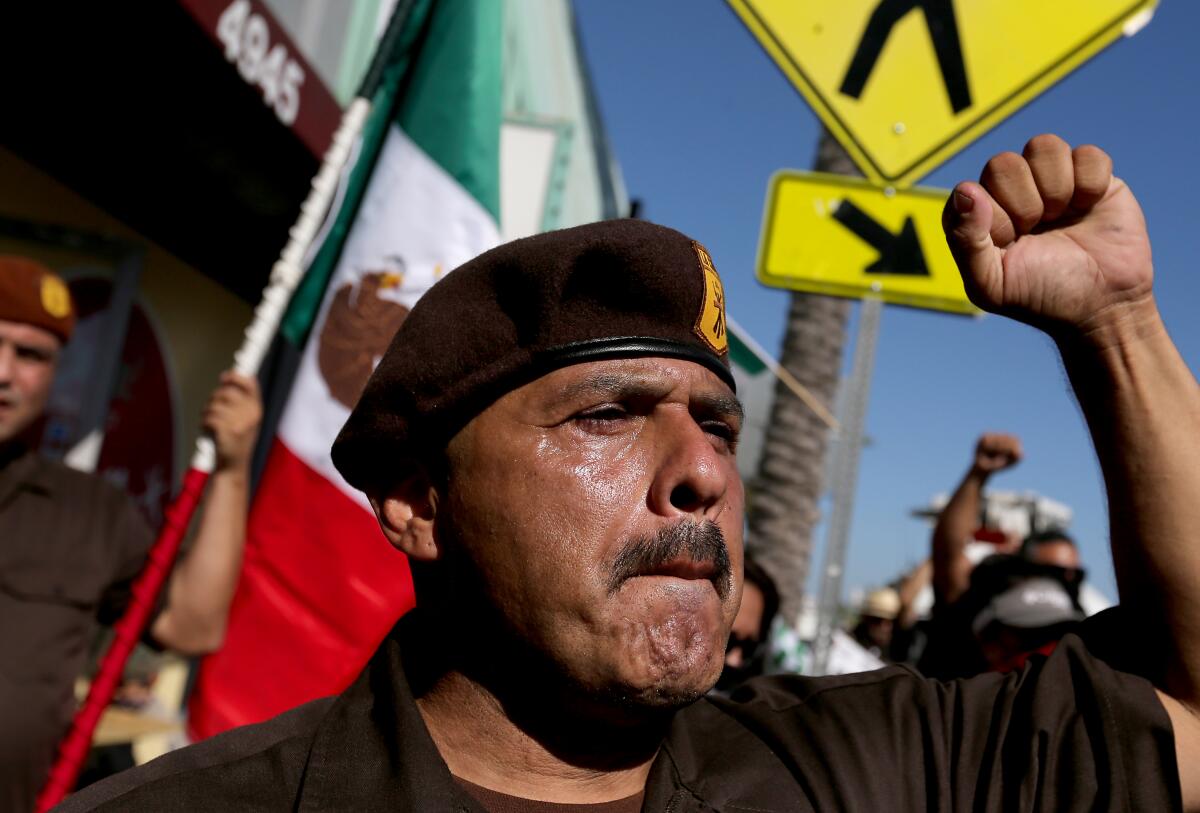
More to Read
Sign up for Essential California
The most important California stories and recommendations in your inbox every morning.
You may occasionally receive promotional content from the Los Angeles Times.
